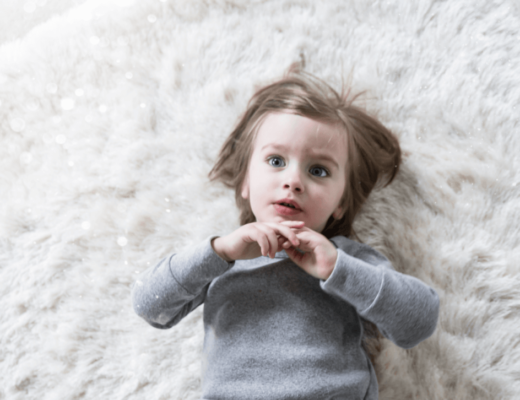Raising a nonverbal autistic child is emotionally draining. It’s hard for all parties involved. It’s hard for Charlie who can’t communicate beyond basic needs (like “I want water”) but it’s also hard on us, his parents.
Today I’m going to discuss a controversial subject. I mean, to be fair, it seems like everything is controversial in the world of autism. Should we use“people first” language? Should I say “Charlie is autistic” or “Charlie has autism”? Is ABA therapy torture? Are functioning labels harmful? Do vaccines cause autism? Is the puzzle piece symbol offensive? You’ll always find someone trying to guilt you for making, what they think, are the wrong decisions for your child.
Raising a nonverbal child is hard enough… but some people feel the need to add insult to injury. Anyway, realizing I was going to be raising a child with severe nonverbal autism required a process of grieving.
Autism and grief
Yes, grief. When Charlie was diagnosed, so many dreams went out the window. All my expectations and everything I’d imagined doing with my child were gone. Of course I’m thankful for his physical health but that does little to comfort me. Severe nonverbal autism… You don’t think it will ever happen to your family, but it can. It happened to us. Charlie is wonderful but we’d all be happier if we could hear his little voice telling us about his day or simply begging for a toy. Sometimes I get overwhelmed by Jude’s constant talking but then I remember how amazing his whining actually is. Music to my ears.
I don’t know why this is so hard for some people to accept. Parents of autistic children have to grieve. This is actually a healthy part of the process after receiving an official diagnosis.
I think there’s a stigma around grieving an autistic child because of the “accepting autism” thing. You read everywhere about people saying how autism makes them who they are, how autism is amazing and should be embraced, there’s even an autism pride day. Darn, I wish my child was high functioning enough to be proud of being autistic. While I love my boy, his quirks and his personality, if there was a way for me to give him the ability to talk, to show love, and to learn self care skills, I’d do it in a heartbeat.

![[Autism] Grieving the child you thought you would have 1 charlieboy](https://theautismcafe.com/wp-content/uploads/2017/12/charlieboy.png)



15 Comments
Rachel
2017-12-12 at 5:26 AMEileen—I love this article! I think (like you so eloquently wrote) that autism parents are made to feel guilty for expressing and feeling the severity of emotions that go along with a diagnosis and the loss and grief. I’m so happy you shared this with the world because I thibk it gives other parents permission to have the same feelings.
Maria
2017-12-12 at 8:10 AMGreat post Eileen, is so true, tolerance should start with allowing the parents to feel whatever they feel about this situation… the world is so full of hate, the change should begin with tolerance being that, tolerance, not to be another way of judging people, because they have to react in a particular way to something as hard as autism. I’m with you in your grieve, always, with love and support
Eileen
2017-12-20 at 5:30 PMThank you so much for commenting Maria. I really appreciate your support!
Siraya
2017-12-12 at 3:30 PMMy son is 3. He was diagnosed a year ago this week. Right now he isn’t very verbal we don’t know if he will be. He was verbal and has regressed drastically.
This post spoke to me in the strongest way. I feel so guilty for grieving. Yes, it’s been a year. No I don’t see me any closer to having a conversation, his 18 month old sister is “passing” him academically, I cry at weddings because I may not have a mother son dance. I explain these feelings to a NT family and I get radio silence. I try to blog as honestly as you so I too can help those feel less alone but also have the outlet. Thank you for posting your honesty-I feel much less alone.
Eileen
2017-12-20 at 5:29 PMI feel guilty about it too but at the same time I’m convinced it’s a healthy and natural part of the diagnosis.
Charlie used to talk too. I think, his regression was one of the hardest part. Not hearing his little voice anymore…
Victoria
2017-12-14 at 11:01 PMThank you for voicing what I believe must be the thoughts of many autism parents. It’s certainly made me feel less alone in my own grief. I’m mid diagnosis for my entirely non-verbal 2.5 year old. The grief that I’m still feeling is only matched by the guilt I felt when the paediatrician told me to prepare myself for the strong likelihood of autism and I burst into tears. I felt guilty and alone for not being able to see the positives in what I found to be a worst case scenario. I wish you and your family happiness and courage along your bumpy journey. Thank you for your candour
Eileen
2017-12-20 at 5:28 PMI think most of us feel this way. It’s just hard to admit. You’re not alone! Thank you for taking the time to comment.
Isis Wise
2017-12-16 at 8:45 PMI love this! Grieving is such a natural part of this diagnosis but we parents are rarely allowed to express our grief. I grieved horribly hard when my now 17 year old daughter was diagnosed at 3 years old. I didn’t allow myself to grieve at all for my now 13 year old son when he was also diagnosed at 3. I think Autism is different than many other childhood diseases or disorders because there is a certain unknown and desire to try every possible therapy under the sky to see how far you can get towards remediating the Autism. This almost constant and active pursuit of hope keeps you from really just accepting the diagnosis. Acceptance is a very necessary step in the grief process and it’s only after many years and spending a fortune in money, time, energy and a ugly divorce that I was finally able to accept their diagnosis. Just think if your child is hit by a car and paralyzed you grieve that they will never walk again and then you learn how to lift a wheelchair and get on with life. You learn to be thankful they are still alive and able to talk and think and engage in life even though it’s from a wheelchair. Autism is different though because you keep trying different things to see if you can get them to “walk”. It’s exhausting! My Autism kiddos are now 17 and 13 and I’m just now finally accepting and now planning out life for them as soon to be adults with Autism.
Eileen
2017-12-20 at 5:27 PMThis was so well written. Thank you so much for your comment!
Rose Gossett
2017-12-29 at 8:56 PMMy daughter has been reading your blog. Thank you for show her and us the way. Emily is newly diagnosed and we are just beginning our journey. Thank you thank you. I adore your boys and cheer them on at every turn.
xo
Eileen
2017-12-29 at 9:21 PMThank you for sharing my blog with her. Thinking about you. Don’t hesitate to message me with any questions.
Rose Gossett
2017-12-30 at 7:55 AMThank you ! I sure will !
Michelle
2019-02-12 at 10:05 AMMy son was diagnosed as autistic when he was four. He had many challenges and at around twenty years old he began to get a lot better. Although when he was between 13 yrs – 20 years old many people close to me, like my mom and my sisters and brother-in-laws, even his sisters; as well as almost all friends told me to institutionalize him. I never. My son died at 21 years old. Trust me when I tell you I would give anything to be with him again with all his challenges and outbursts..it is worth it. My heart is in constant pain, grieving living with an autistic son is nothing compared to grieving the loss of life of the gift of my son.
Eileen
2019-02-12 at 6:56 PMI’m so sorry for your loss.
Crystal
2023-03-07 at 3:02 AMThis post really touched a spot in me. I started to cry. I feel guilty for these thoughts I have. My son is 3 with autism and epilepsy. He used to talk, was on his way to saying sentences when one really bad seizure took it all away. Now he can’t even say mama and it hurts so deeply. I envy my family members who complain about their kids nonstop talking. When he was diagnosed with severe autism the first thing the doctor said was he most likely will not talk and was glad we already did sign language. What I would do just to hear my baby talk again. The things we take for granted.